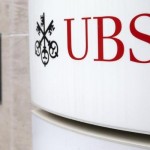UBS Sets Sights on U.S. Investment Banking Again

UBS AG, which stumbled badly the last time it pushed to expand in the lucrative U.S. investment-banking market, is again seeking to build its business here—though this time with more modest ambitions.
UBS AG, which stumbled badly the last time it pushed to expand in the lucrative U.S. investment-banking market, is again seeking to build its business here—though this time with more modest ambitions.
Since the beginning of last year, UBS has boosted its ranks of senior investment bankers in the U.S. by about 25, or 20%, according to a spokeswoman.
On average, other big Wall Street firms have lost about five senior bankers on a net basis in that period, according to estimates based on publicly available information from financial-industry recruiter Options Group.
The push at UBS, which comes amid booming mergers-and-acquisitions and equity markets, has sped up in recent months, with the hiring of senior bankers from firms including Morgan Stanley, Lazard and Evercore Partners Inc.
UBS was less likely to attract talent from such top-tier firms after it suffered more than $50 billion of credit losses in 2008, necessitating a rescue from the Swiss central bank. That followed an ill-fated bid to become a top-tier player in investment banking in the U.S. before the financial crisis, and prompted UBS to largely abandon those ambitions.
When UBS announced in 2012 that it would further scale back and get out of several businesses in a restructuring, some analysts questioned whether it would ultimately part ways with the troubled investment bank and focus instead on its large and valuable wealth-management operation.
But the recent acceleration in hiring shows UBS still has ambitions for the cyclical, yet at times highly profitable, investment-banking business—even if they are more measured than before.
To be sure, UBS has room to climb. It currently is 14th in the ranking of U.S. M&A advisers by value of announced deals in 2015, according to Dealogic. In equity underwriting, it is 11th, while in debt, it is 15th.
UBS is expanding from a dramatically reduced employee base following successive waves of banker departures in the wake of the giant credit losses and other missteps. In its securities-and-investment-banking division, UBS had 11,794 employees as of last year, down from 23,739 on the eve of the financial crisis in 2007. Also, it often takes new hires years to bring in business—if they do so at all. European banks have had a notoriously difficult time penetrating the top tier of U.S. investment banking, though that hasn’t stopped them from trying time and again.
To win business from corporate clients with increasingly global aspirations, it is necessary to have a meaningful presence in the U.S., which accounts for almost 60% of the global investment-banking fee pool, according to Andrea Orcel, who runs UBS’s overall securities and investment-banking operation.
“You can’t have a global investment-banking franchise without a credible business in the U.S.,” Mr. Orcel said in an interview. The 51-year-old Italian, a former Merrill Lynch banker who was hired by UBS Chief Executive Sergio Ermotti in 2012, said he plans to keep up the current pace of hiring over the next few years—assuming he can find the right people—and that the U.S. is his main focus of investment now.
Underscoring the more limited scope of this expansion, Mr. Orcel likens UBS to a “super boutique,” an allusion to a crop of smaller merger-advisory firms that have enjoyed success of late.
UBS no longer has the lending muscle that helps larger rivals win business, but it retains a big sales-and-trading platform as part of its securities operation that helps attract and better serve clients, he says.
The hiring push will be “self-funded,” Mr. Orcel says—meaning overall head count under his leadership will remain steady. The strategy is different from past attempts by UBS and other European banks to expand in the U.S., he says.
Helping explain why UBS is in expansion mode again, its business has been performing well and the bank is back on sound financial footing.
On Tuesday, UBS reported that its first-quarter profit jumped nearly 90%, in part because its investment bank, like others’, is benefiting from strong merger-advisory and equity-underwriting activity. Those businesses, along with debt underwriting, form the core of an investment-banking franchise.
UBS’s deal-advisory revenue rose 12% year-over-year in the first quarter to 172 million Swiss francs ($187.7 million), while its equity capital markets business, which includes initial public offerings of stock, brought in 306 million francs, up 56%. UBS now has a relatively strong core capital ratio—a measure of its cushion against potential losses—of 13.7%.
Its shares have almost doubled from a low in mid-2012; over the same period, those of Swiss rival Credit Suisse AG, which had made more modest cuts to its investment bank, are up 43%.
Source: WSJ – UBS Sets Sights on U.S. Investment Banking Again




























